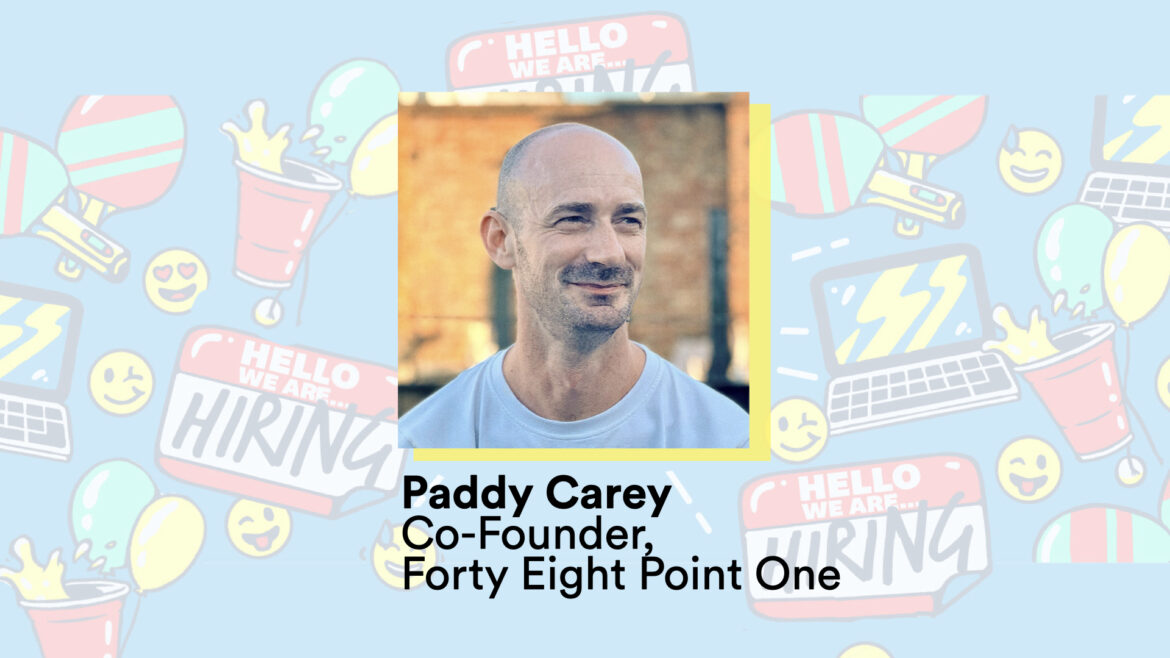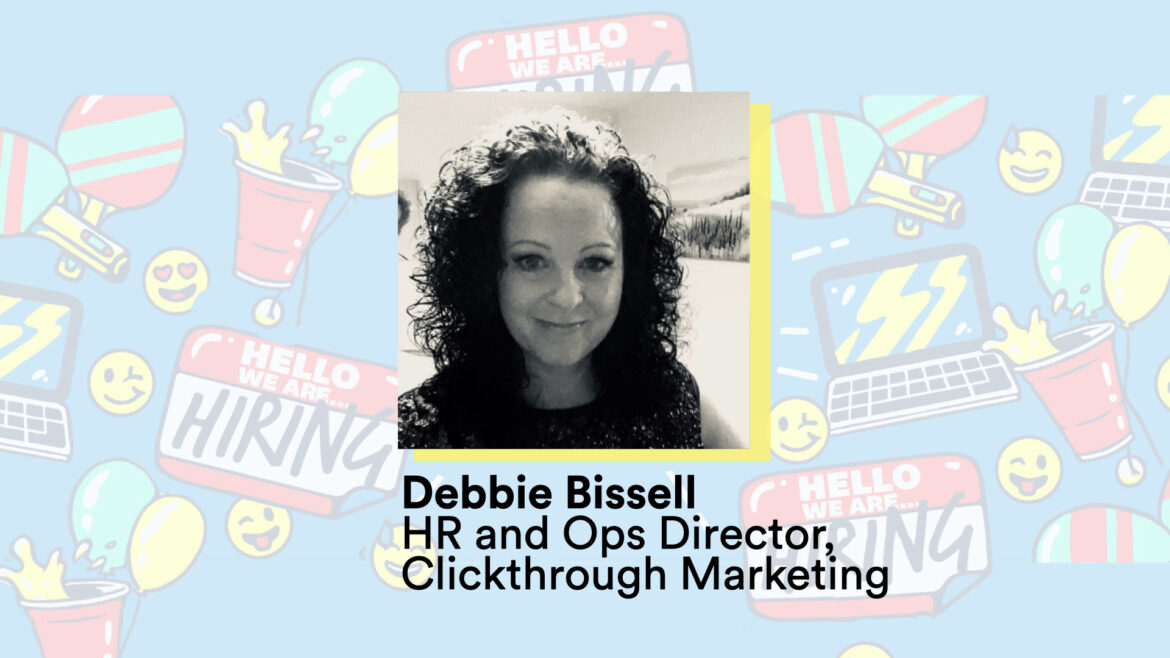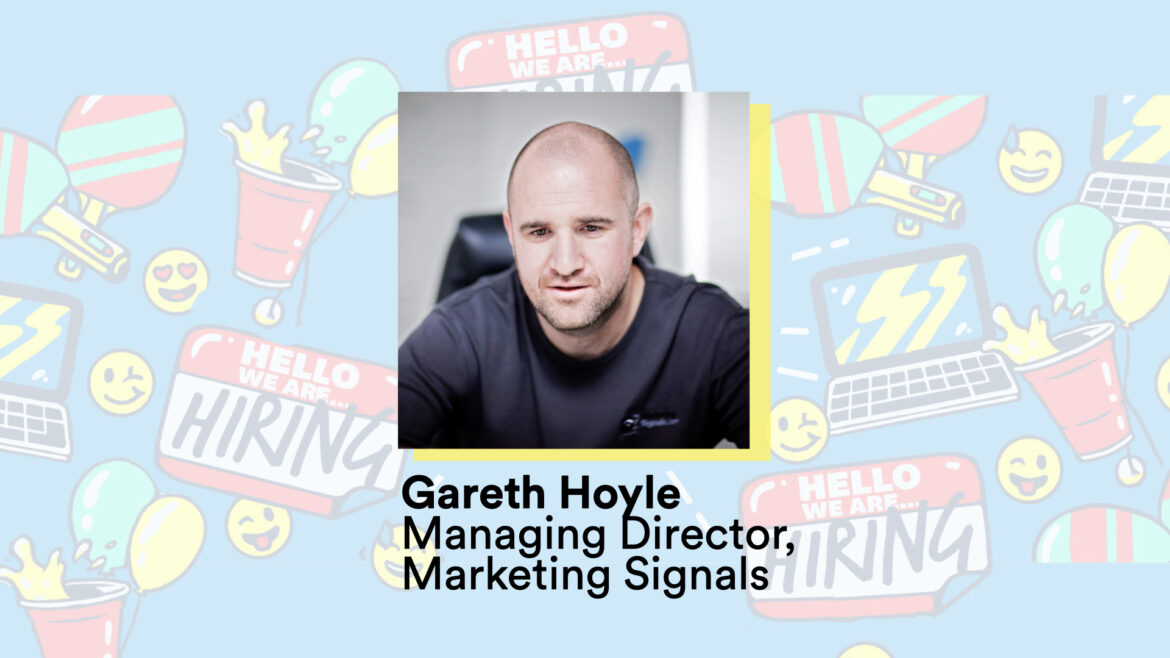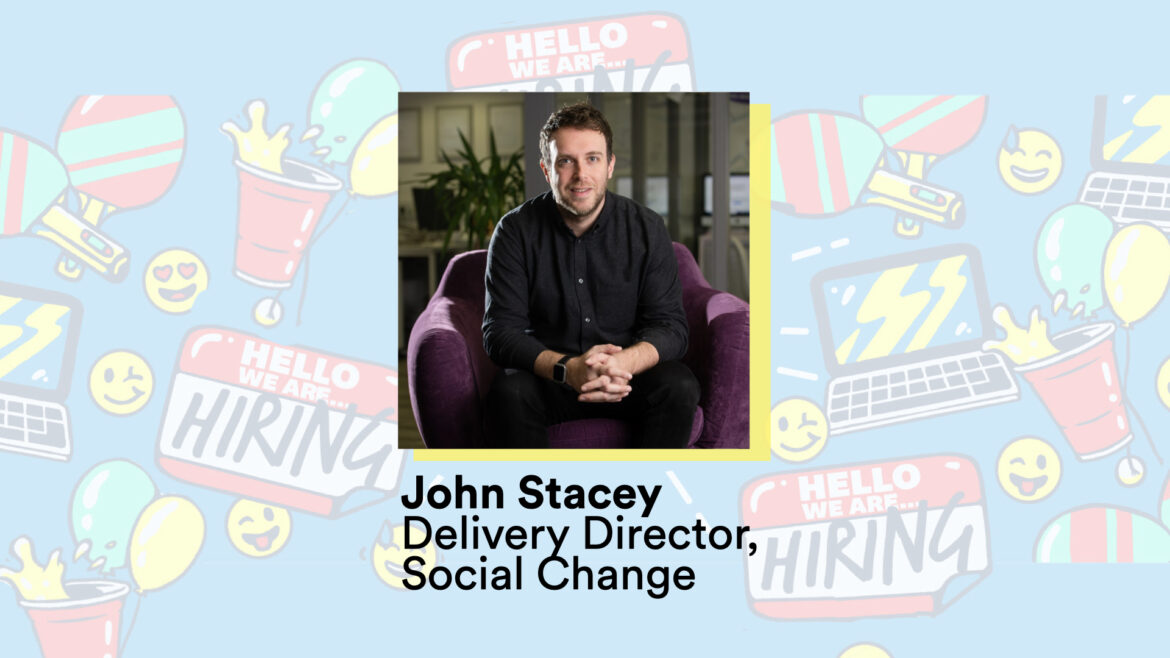Speakers
📢 Here are the current speakers we have for this event. We will also hear from you – the event is all about taking part.
“Transparency Around My Own Diagnosis
Helped Create an Inclusive Environment in My Agency”

“Understanding Neurodiversity better has made me feel less like the idiot in the room. I can accept now that this isn’t me being thick or lazy, I just can’t focus on things that don’t interest me.”
In 2022, at the age of 40, Paddy Carey, was diagnosed with Attention Deficit Disorder (ADD).
At the time, Paddy had been running his agency, Forty Eight Point One, with his co-founders for nearly five years. Paddy wanted to build a business that allowed his team to work on their terms – at the times that suited them, and in the ways that suited them. Directors included.
But that didn’t stop this new lens from changing his leadership approach.
“The diagnosis helped me to go to the other directors and say, ‘Here’s something that I’m facing, here’s what I’m doing about it, and here are some things that I might need from you to help me with that’,” Paddy says.
“Being able to have that conversation was really helpful – and it made me kind of think more about how we can make changes in the agency to accommodate that for others.”
In hopes it would encourage other team members experiencing similar problems to speak up, Paddy decided to write a blog post about his diagnosis on the agency’s website.
“I felt quite uncomfortable putting that blog post out, because I didn’t want it to come across as narcissistic. But the feedback has been really reassuring,” he says.
“It was a great reminder of the importance of being open and transparent, and how that can help everyone else take a bit of a weight off their shoulders.”
At Dream Team, Paddy will be sharing how getting diagnosed with ADD as an agency founder helped him foster an inclusive environment for neurodiverse talent – almost accidentally. Come along to hear why his agency champions transparency around mental health and the benefits of doing so.
Who is There for You When You’re
There for Everyone Else?

“I love my job, helping and developing people, and I think it’s great to be a trusted advisor that people can come to when bad stuff happens. But where do I go?”
Being an agency’s HR person can be a rollercoaster of emotion and stress – something Debbie Bissell, HR and operations director at Clickthrough Marketing knows all too well.
“Last year, a lot of things happened in quick succession, and it was the gravitas of the things our team were needing support with. We had sudden death, suicide, mental health and personal challenges that we’ve not covered before, and regrettably I lost close friends too. It was the sheer volume of negative emotions,” she says.
“It’s important that you’re supporting the person who’s looking after HR in your business, as it can be emotionally draining. I think it’s quite plausible I could have just fallen over last year. I certainly felt like I didn’t always know how to make things better.”
There’s a sense that being in HR, you’re in the job because you’re able to deal with these pressures without breaking – but sometimes, it can all be too much.
“I think I’m quite a robust individual, but that doesn’t mean there aren’t times where a robust person goes, ‘I’ve had enough’. I think sometimes there’s a belief that we’re really strong, so we’ll be fine – but have you checked in on us?”
For Debbie, it’s about HR folk being recognised for the emotional support they do as well as the other parts of their job.
“If you’ve never gone to HR, you don’t know what they do. You might just think they sort out contracts and payroll, they discipline and dismiss people. But the reality is, it’s so much more complex, and so much more confidential, we can’t share the reality of what we are working on” she says.
“It’s really important that business owners support their HR leader or ‘people person’. And that doesn’t mean things like counselling necessarily, but just some recognition that actually, things can be pretty tough on you too.”
At Dream Team, Debbie will be talking about the realities of being in HR, and the toll it can take on the person who is there for everyone else.
“How We’re Making the Four-Day Week
Work for Our Agency”

“A wise man once told me, ‘Work isn’t a place you go, it’s a thing you do’,” says Gareth Hoyle, MD of Marketing Signals.
“So why does turning up for work and sitting at a desk for 12 hours put you ahead of someone that does 6 hours, but is still achieving their goal?”
Years after it first burst onto the agency scene, the topic of the four-day-week still divides a room. The general consensus is that it relies on having a lot of trust, complete transparency within your team, and a certain type of service offering in order to make it work.
But Gareth seems to have found a way around that…
“It’s two long weekends a month, basically. So rather than every Friday, we get every other Friday and Monday,” he says.
The Marketing Signals approach is to have two teams who alternate their working weeks. So team one will work Monday to Thursday, then return back to work on Tuesday, and team two will work Tuesday to Friday, then Monday to Thursday the following week.
“It just seemed like the most logical solution. We can’t just close on a Friday – a lot of our clients want to speak about weekend campaigns, and we need to be visible.”
So far, it’s working well. To prevent people from taking advantage of an ‘easier’ work week, Gareth made sure his team understood that they must still provide a week’s worth of output – just in four days instead of five.
“When you work remotely, you get found out a bit more,” he says. “Combine that with the four-day week, where everything is being measured and managed, we know what everyone’s output should be. So they can’t hide anywhere.”
At Dream Team, Gareth will be going into detail about how he implemented a four-day week within his PPC agency, and why his flexible working approach means his team are in it for the long term.
How Should You Approach Implementing
Change When You Can’t Please Everyone?

When John Stacey joined Social Change last year, one of his challenges was to improve the team’s overall productivity and ways of working.
“Like many agencies, the pandemic led to a lot of changes. We tried so many different ways of working, we listened to the team, and implemented it. However, despite this consultative approach, it seemed we were still getting it wrong.”
John says it’s been a rewarded yet frustrating process trying to get things right for the team, especially when trying to understand what they need to thrive and enhance their quality of work.
“I tried different types of feedback, curious questions, productive conversations. It was months filled with attempts to please, littering the team with micro-changes,” he explains. “People would say they were worried they didn’t have time to implement something new. At times it was difficult to make the team see that any changes were for them, and purely to improve their productivity and life at work.”
One of the things that came back from John’s feedback exercises was that the team felt they didn’t need to know everything as it was time-consuming and sometimes caused anxiety. They decided to stop sharing everything – but then the team started to feel disconnected from the senior management.
“We’ve since given everybody more transparency of the business, what’s going on behind the scenes, and the future,” explains John. “We’ve made lots of organisational changes, shifted loads of things short-term, and put ownership and independence of work back on everyone a little bit. But a lot of change in a small space of time is naturally concerning for some people. Some took it in their stride, some didn’t.”
Regardless, John decided to push ahead and what he has realised in his quest to improve the agency’s productivity has been that you simply can’t please everyone.
“We know that it isn’t one-size-fits-all and you shouldn’t try and tailor to individual wants and needs, but how can you do that in a small agency where the process and ways of working have to be the same for everyone to work?”
“We are a diverse group of people with different opinions, views and ideal ways of working which is great – but trying to get everyone to agree on a process and ‘way’ to do things is hard. What we have learnt is that we need to find that happy medium”.
“We just want everybody to feel empowered to do their job, and we want them to know we’re here to support them.”
At Dream Team, John will be sharing more about his frustrations and successes in improving his team’s way of working, and how changes in operations and process can have a real human effect.
